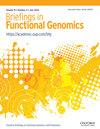DockingGA: enhancing targeted molecule generation using transformer neural network and genetic algorithm with docking simulation
IF 2.5
3区 生物学
Q3 BIOTECHNOLOGY & APPLIED MICROBIOLOGY
引用次数: 0
Abstract
Generative molecular models generate novel molecules with desired properties by searching chemical space. Traditional combinatorial optimization methods, such as genetic algorithms, have demonstrated superior performance in various molecular optimization tasks. However, these methods do not utilize docking simulation to inform the design process, and heavy dependence on the quality and quantity of available data, as well as require additional structural optimization to become candidate drugs. To address this limitation, we propose a novel model named DockingGA that combines Transformer neural networks and genetic algorithms to generate molecules with better binding affinity for specific targets. In order to generate high quality molecules, we chose the Self-referencing Chemical Structure Strings to represent the molecule and optimize the binding affinity of the molecules to different targets. Compared to other baseline models, DockingGA proves to be the optimal model in all docking results for the top 1, 10 and 100 molecules, while maintaining 100% novelty. Furthermore, the distribution of physicochemical properties demonstrates the ability of DockingGA to generate molecules with favorable and appropriate properties. This innovation creates new opportunities for the application of generative models in practical drug discovery.DockingGA:利用变压器神经网络和遗传算法进行对接模拟,提高靶向分子生成能力
生成分子模型通过搜索化学空间生成具有所需特性的新型分子。传统的组合优化方法(如遗传算法)在各种分子优化任务中表现出卓越的性能。然而,这些方法并不利用对接模拟为设计过程提供信息,而且严重依赖现有数据的质量和数量,还需要额外的结构优化才能成为候选药物。针对这一局限性,我们提出了一种名为 DockingGA 的新型模型,该模型结合了 Transformer 神经网络和遗传算法,可生成对特定靶点具有更好结合亲和力的分子。为了生成高质量的分子,我们选择了自参照化学结构字符串来表示分子,并优化分子与不同靶点的结合亲和力。与其他基线模型相比,DockingGA 被证明是所有对接结果中排名前 1、10 和 100 位分子的最佳模型,同时保持了 100% 的新颖性。此外,理化性质的分布也证明了 DockingGA 生成具有有利和适当性质的分子的能力。这一创新为生成模型在实际药物发现中的应用创造了新的机遇。
本文章由计算机程序翻译,如有差异,请以英文原文为准。
求助全文
约1分钟内获得全文
求助全文
来源期刊

Briefings in Functional Genomics
BIOTECHNOLOGY & APPLIED MICROBIOLOGY-GENETICS & HEREDITY
CiteScore
6.30
自引率
2.50%
发文量
37
审稿时长
6-12 weeks
期刊介绍:
Briefings in Functional Genomics publishes high quality peer reviewed articles that focus on the use, development or exploitation of genomic approaches, and their application to all areas of biological research. As well as exploring thematic areas where these techniques and protocols are being used, articles review the impact that these approaches have had, or are likely to have, on their field. Subjects covered by the Journal include but are not restricted to: the identification and functional characterisation of coding and non-coding features in genomes, microarray technologies, gene expression profiling, next generation sequencing, pharmacogenomics, phenomics, SNP technologies, transgenic systems, mutation screens and genotyping. Articles range in scope and depth from the introductory level to specific details of protocols and analyses, encompassing bacterial, fungal, plant, animal and human data.
The editorial board welcome the submission of review articles for publication. Essential criteria for the publication of papers is that they do not contain primary data, and that they are high quality, clearly written review articles which provide a balanced, highly informative and up to date perspective to researchers in the field of functional genomics.
 求助内容:
求助内容: 应助结果提醒方式:
应助结果提醒方式:


